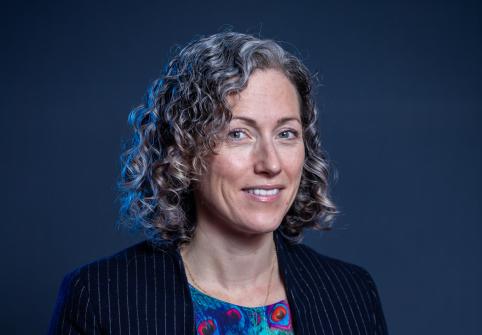News
Dr. Jenny Lawler, Senior Research Director, Qatar Environment and Energy Research Institute (QEERI)
14 Apr 2020
What are your most prominent research efforts currently?
Qatar Environment and Energy Research Institute (QEERI) focuses on research in areas as diverse and synergistic as the environment and sustainability, earth sciences, natural and environmental hazards, corrosion, computational modeling, energy and water; with a focus on desert environments such as Qatar.
Are you engaged in research related to tackling the coronavirus (COVID-19) and what is it?
While we have not traditionally been working in the area of viruses, we have swiftly aligned several research efforts to support the fight against COVID-19.
Apart from essential services (such as critical testing of disinfectants for national stakeholders and preparation of sanitizers), our research laboratories have been closed since March 12. However, there is much that we can achieve remotely. For example, air quality has potentially been linked to transmission and population resilience against the illness, as have weather conditions. Long-term effects of poor air quality can lead to increased instances of respiratory and cardiovascular diseases among a population. Pre-existing and underlying conditions have been linked with poorer outcomes and increased vulnerability to COVID-19. Preliminary research has linked poor air quality with increased morbidity/mortality associated with COVID-19; however, further epidemiological research is needed.
One impact of social distancing is projected to be improvements in air quality associated with the reduction in traffic and movement in a city. Emerging evidence appears to suggest that weather conditions such as temperature and humidity may influence COVID-19 transmission, with high temperature and high humidity reducing transmission.
We have air quality monitoring stations around Doha, from which we retrieve data about the levels of tiny particulate matter in the air and other indicators of air quality such as nitrogen dioxide. In addition, we have solar irradiation monitoring stations which monitor sunlight and weather patterns across the country.
How can these efforts support local measures in this direction?
Using our Air Quality Monitoring Stations and Global near Real-Time Vehicular Emissions Estimator (GReVEE) and satellite observations, we can see the impact of social distancing and remote working measures on air quality, relevant for the Ministry of Public Health, and to support the Supreme Committee for Crisis Management in considering the traffic and air quality implications of different social distancing scenarios. With our solar and weather monitoring stations, we can utilize emerging global data on viral loading under different temperature and humidity conditions to be able to quantify and forecast potential impacts on viral airborne transmission during the coming hotter and drier months. This also allows us to predict/forecast and adapt precautionary measurements to the virus viability to minimize/mitigate the economic aspects.
We can combine epidemiological data from the ongoing COVID-19 pandemic with meteorological and socioeconomic data (e.g. population structure) to create a longitudinal dataset and derive a function that can estimate the rate of infections from meteorological, socioeconomic, and epidemiological variables.
What is the most prominent advice and guidance that you are currently directing?
We have been actively engaged in synthesizing the global research related to COVID-19 for dissemination to the general public in order to increase awareness. We have engaged through radio, television, and print and online media pieces; related, for example, to the impact on the environment of social distancing (e.g. the reduction in carbon emissions), and the relevance of optimum drinking and wastewater treatment in mitigating the spread of the virus.
What aspects of cooperation and partnerships are you focused on in terms of research efforts related to coronavirus?
We cooperate with a number of national stakeholders, both government and industry, in these research efforts, utilizing data sharing and discussing the best ways to move forward with maximum impact.
How are your experiences used to devise or develop ways to address this pandemic?
Our vast collective experience in managing big data, applying mathematical and computational solutions to environmental problems, and being able to properly understand the global research, can allow us as a research institute to make a tangible contribution to Qatar’s fight against COVID-19.
Are you cooperating with research institutions inside or outside Qatar?
The global research community has come together to fight COVID and we have a multitude of research partnerships with institutions within Qatar and globally – though there are too many to go into specifics.
